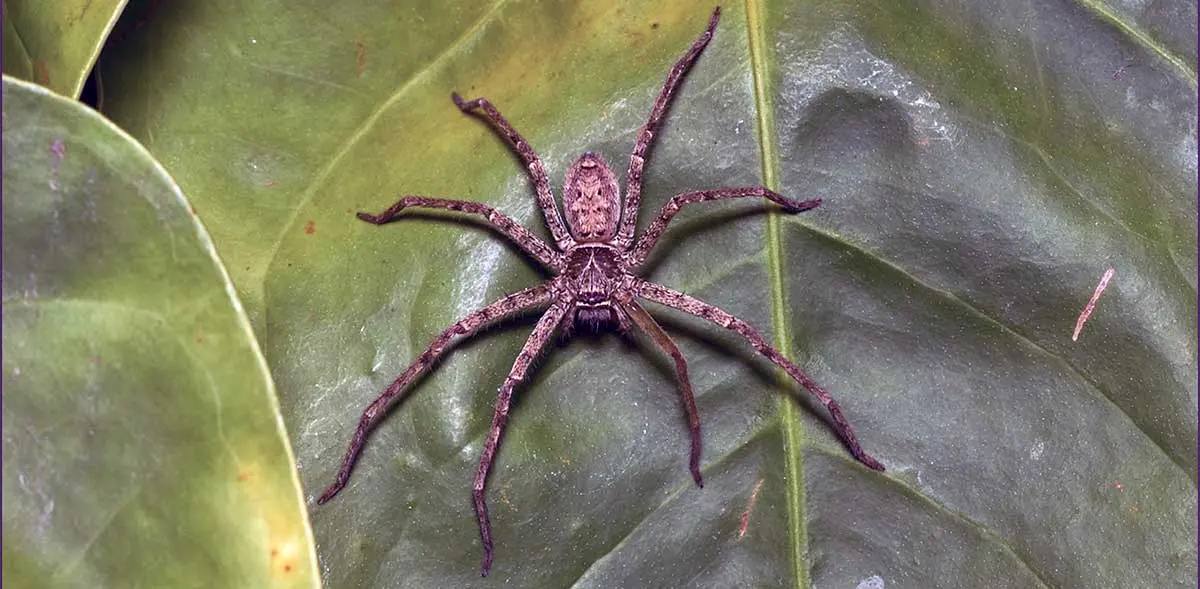Unveiling Spiders Intelligence: A Fascinating Journey Into Their World
Spiders intelligence is a topic that's often overlooked, but trust me, it's way more intriguing than you'd think. We tend to view spiders as creepy crawlers with a knack for spinning webs, but there's so much more to these eight-legged wonders. Their cognitive abilities are nothing short of extraordinary, and they're far smarter than most people give them credit for. So, if you've ever wondered what's going on in a spider's tiny brain, this is the article for you.
Picture this: you're sitting in your room, minding your own business, when suddenly you spot a spider weaving its intricate web in the corner. You might feel a little uneasy, but take a moment to appreciate the sheer brilliance of that web. It's not just random threads; it's a masterpiece of engineering, and that's just the tip of the iceberg when it comes to spiders' intelligence. They're not just web-spinning machines; they're problem solvers, hunters, and survivors.
Now, I know what you're thinking: "How can a creature with such a small brain be so intelligent?" Well, that's exactly what we're going to explore in this article. We'll dive deep into the world of spiders, uncovering their cognitive abilities, problem-solving skills, and the fascinating ways they interact with their environment. So, buckle up, because we're about to embark on an adventure into the minds of these incredible creatures.
- Alice Rosenbaum Onlyfans The Rise Of A Digital Sensation
- Pepper 0 Family The Ultimate Guide To Exploring Their Origins Legacy And Fascinating World
Understanding Spiders Intelligence: What It Truly Means
When we talk about spiders intelligence, we're not just referring to their ability to spin webs. Oh no, there's so much more to it. Spiders exhibit a wide range of cognitive abilities that are crucial for their survival. From navigating complex environments to recognizing patterns and even remembering past experiences, these creatures are way smarter than you'd expect.
Key Aspects of Spiders' Cognitive Abilities
Let's break it down into some key aspects:
- Memory: Spiders can remember where they've built their webs and even recognize specific locations. This memory helps them return to familiar hunting grounds.
- Problem Solving: Spiders are excellent at adapting to new situations. If their web gets damaged, they'll quickly repair it or build a new one in a better location.
- Learning: Believe it or not, spiders can learn from their experiences. They adjust their hunting strategies based on what works and what doesn't.
These abilities are essential for their survival in the wild. They allow spiders to thrive in various environments, from dense forests to urban areas. It's not just about spinning webs; it's about adapting and surviving.
Spiders Intelligence in Action: Real-Life Examples
To truly understand spiders intelligence, let's look at some real-life examples. There are numerous instances where spiders have shown incredible problem-solving skills and adaptability.
Case Study: The Web-Repairing Spider
Imagine a spider whose web has been partially destroyed by a strong wind. Instead of giving up, this spider quickly assesses the damage and starts repairing it. It uses its silk to reinforce weak points and rebuilds the web in a way that makes it even stronger. This is not just a random act; it's a calculated response based on the spider's understanding of its environment.
Another Example: The Strategic Hunter
Some spiders don't rely solely on their webs to catch prey. They use ambush tactics, hiding in strategic locations and waiting for the perfect moment to strike. This requires a keen sense of timing and spatial awareness, both of which are hallmarks of spiders intelligence.
These examples highlight how spiders use their cognitive abilities to overcome challenges and thrive in their environments. It's a testament to their adaptability and resourcefulness.
The Science Behind Spiders Intelligence
So, what's the science behind spiders intelligence? How do these tiny creatures manage to accomplish such complex tasks? The answer lies in their brain structure and neural networks.
Brain Structure and Neural Networks
Despite their small size, spiders have highly efficient brains. Their neural networks are optimized for processing information quickly and efficiently. This allows them to make split-second decisions, whether it's repairing a web or catching prey.
Studies have shown that spiders can process complex sensory information, such as vibrations in their webs, and respond accordingly. This ability is crucial for their survival, as it allows them to detect and respond to potential threats or opportunities.
Moreover, spiders have specialized sensory organs that enhance their cognitive abilities. These organs help them detect changes in their environment, giving them a competitive edge in the wild.
How Spiders Intelligence Compares to Other Creatures
When it comes to intelligence, spiders often get overshadowed by other creatures, like dolphins or chimpanzees. But don't be fooled; spiders hold their own in the animal kingdom.
Comparing Spiders to Insects
Compared to other insects, spiders are way smarter. While ants and bees are known for their social structures and communication skills, spiders excel in individual problem-solving and adaptability. They don't rely on group dynamics to survive; they rely on their own wits.
Matching Wits with Larger Animals
Surprisingly, spiders can hold their own against larger animals when it comes to certain cognitive tasks. Their ability to adapt to new environments and solve problems is comparable to some small mammals. This shows that intelligence isn't just about brain size; it's about how efficiently the brain is used.
So, the next time you see a spider, remember that it's not just a simple creature. It's a complex, intelligent being with its own set of skills and abilities.
Spiders Intelligence and Human Interactions
Now, let's talk about how spiders intelligence affects their interactions with humans. Whether you love them or hate them, spiders play an important role in our ecosystems. Understanding their cognitive abilities can help us appreciate them more and even learn from them.
Benefits of Spiders in Our Lives
Spiders are natural pest controllers. They help keep insect populations in check, which benefits both agriculture and human health. By understanding their intelligence, we can better appreciate their role in maintaining ecological balance.
Learning from Spiders
There's a lot we can learn from spiders. Their problem-solving skills and adaptability can inspire innovations in fields like robotics and engineering. By studying their cognitive abilities, we can gain insights into how to design smarter machines and systems.
So, the next time you see a spider, don't just shoo it away. Take a moment to observe its behavior and marvel at its intelligence. You might just learn something new.
Challenges Facing Spiders Intelligence Research
Despite the fascinating nature of spiders intelligence, there are challenges in studying it. One of the biggest hurdles is the small size of their brains, which makes it difficult to conduct detailed studies. Additionally, spiders are often misunderstood and even feared by humans, which can hinder research efforts.
Overcoming Research Obstacles
Scientists are using innovative techniques to overcome these challenges. Advanced imaging technologies and behavioral studies are helping us gain a deeper understanding of spiders intelligence. By combining these methods, researchers can piece together a more complete picture of how these creatures think and behave.
Furthermore, public awareness campaigns are helping to change perceptions about spiders. As people learn more about their intelligence and ecological importance, they become more supportive of research efforts. This shift in attitude is crucial for advancing our understanding of these incredible creatures.
Spiders Intelligence and the Future
As we continue to study spiders intelligence, the possibilities are endless. From developing new technologies inspired by their problem-solving skills to finding ways to coexist with them in our environments, the future looks bright for spider research.
Technological Innovations
Imagine robots that can navigate complex environments like a spider. Or materials that are as strong and flexible as spider silk. These are just a few examples of how studying spiders intelligence can lead to groundbreaking innovations.
Conservation Efforts
Understanding spiders intelligence can also aid in conservation efforts. By appreciating their role in ecosystems, we can work to protect their habitats and ensure their survival for future generations. This is not just about preserving biodiversity; it's about maintaining the delicate balance of our planet's ecosystems.
Conclusion: Embrace the World of Spiders Intelligence
In conclusion, spiders intelligence is a fascinating topic that deserves more attention. From their problem-solving skills to their adaptability, these creatures are far more complex than we give them credit for. By understanding their cognitive abilities, we can gain a deeper appreciation for their role in our ecosystems and even learn from them.
So, the next time you encounter a spider, don't just dismiss it as a creepy crawler. Take a moment to observe its behavior and marvel at its intelligence. And remember, every spider you see is a testament to the wonders of nature and the incredible diversity of life on our planet.
Now, it's your turn. Leave a comment below and let me know what you think about spiders intelligence. Have you ever observed a spider doing something amazing? Share your stories and help spread the word about these incredible creatures!
Table of Contents
- Unveiling Spiders Intelligence: A Fascinating Journey Into Their World
- Understanding Spiders Intelligence: What It Truly Means
- Key Aspects of Spiders' Cognitive Abilities
- Spiders Intelligence in Action: Real-Life Examples
- Case Study: The Web-Repairing Spider
- Another Example: The Strategic Hunter
- The Science Behind Spiders Intelligence
- How Spiders Intelligence Compares to Other Creatures
- Spiders Intelligence and Human Interactions
- Challenges Facing Spiders Intelligence Research
- Spiders Intelligence and the Future
- Conclusion: Embrace the World of Spiders Intelligence



Detail Author:
- Name : Kitty Zulauf
- Username : donnie05
- Email : herzog.raven@mclaughlin.com
- Birthdate : 1990-12-25
- Address : 329 Jaleel Ridge North Ashlee, ID 03526
- Phone : 417.751.4182
- Company : Cummings PLC
- Job : Preschool Teacher
- Bio : Commodi omnis fuga recusandae illum ea maiores. Accusamus quidem non assumenda vitae fugit quae vel sit. Esse quidem sit animi non sint aut.
Socials
tiktok:
- url : https://tiktok.com/@alysa_upton
- username : alysa_upton
- bio : Aliquid non numquam omnis soluta earum unde non.
- followers : 6823
- following : 1531
twitter:
- url : https://twitter.com/alysa_real
- username : alysa_real
- bio : Veritatis animi aut aliquam velit nulla itaque. Nihil autem reprehenderit iusto. Voluptatibus tempora sunt sit aut non.
- followers : 1305
- following : 1405
linkedin:
- url : https://linkedin.com/in/alysaupton
- username : alysaupton
- bio : Dolores commodi culpa a nesciunt.
- followers : 3897
- following : 879
facebook:
- url : https://facebook.com/alysa_upton
- username : alysa_upton
- bio : Quasi a impedit non nobis enim. Sunt perferendis et nostrum.
- followers : 394
- following : 735
instagram:
- url : https://instagram.com/upton1986
- username : upton1986
- bio : Minus dicta voluptatem cupiditate. Neque dolores est at consequatur et quo.
- followers : 3506
- following : 569